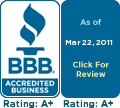|
Payroll and Other Remuneration Used in
Workers Comp Premiums
In
all states but one, Workers' Compensation insurance uses "remuneration" as
the exclusive basis for computing premiums. (Washington State
currently allows contractors to use hours worked instead.) But
although payroll is
the most common component of
remuneration, it is not
the only one. In
most states, the rules about remuneration are written by the
National Council on Compensation Insurance, or NCCI. But
keep in mind that some states are non-NCCI jurisdictions, where
there may be some significant differences in how remuneration is
defined. The primary differences is that a few non-NCCI states
(Delaware and Pennsylvania) do not allow for the premium portion of
overtime pay to be excluded. Most other states, even non-NCCI ones,
follow NCCI rules in this regard pretty closely. Please keep in mind
that this information is offered only as a general guide. We
recommend that employers check with their local state regulators to
verify what specific rules and exceptions to these general
guidelines may apply.
Under
NCCI rules,* remuneration includes:
| |
|
| |
|
| |
|
| |
|
| |
|
| |
Payment by an employer of amounts that would
have been withheld from employees to meet
statutory obligations for insurance or
pension plans such as the Federal Social
Security Act or Medicare.
|
| |
Payment to employees on any basis other than
time worked, such as piecework, profit
sharing or incentive plans.
|
| |
Payment or allowances for hand tools or
hand-held power tools used by employees in
their work or operations for the insured.
These tools may be supplied directly by the
employee or to the employee through a third
party;.
|
| |
The rental value of an apartment or house
provided to an employee based on comparable
accommodations;
|
| |
The value of lodging, other than an
apartment or house received by an employee
as part of their pay to the extent shown in
the insured's records;
|
| |
The value of meals received by employees as
part of their pay to the extent shown in the
insured's records;
|
| |
The value of store certificates,
merchandise, credits or any other substitute
for money received by employees as part of
their pay;
|
| |
Payments for salary reduction, employee
savings plans, retirement or cafeteria plans
(IRC 125) that are made through
employee-authorized salary reduction from
the employee's gross pay;
|
| |
Davis-Bacon wages or wages from a similar
prevailing wage la;.
|
| |
Annuity plans;
|
| |
Expense reimbursements to employees to the
extent that an employer's records do not
confirm that the expense was incured as a
valid business expense;
Exception: When
it can be verified that the employee was
away from home overnight on the business of
the employer, but the employer did not
maintain verifiable receipts for incured
expenses, a reasonable expense allowance,
limited to a maximum of $30 per day, is
permitted.
|
| |
Payment for filming of commercials excluding
subsequent residuals that are earned by the
commercial's participant(s) each time the
commercial appears in print or is broadcast.
|
|
Under NCCI rules, Remuneration excludes:
|
|
| |
Tips or other gratuities;
Payments by an employer to group insurance or group
pension plans for employees;
|
| |
Payments by an employer into third-party trusts for
the Davis-Bacon Act or a similar prevailing wage law
provided the pension trust is qualified under IRC
Sections 401(a) and 501(a);
|
| |
The value of special rewards for individual invention
or discovery;
|
| |
Dismissal or severance payments except for time
worked or vacation accrued;
|
| |
Payments for active military duty;
|
| |
Employee discounts on goods purchased from the
employee's employer;
|
| |
Expense reimbursements to employees to the extent
that an employer's records confirm that the expense was
incured as a valid business expense;
Reimbursed expenses and flat expense allowances
(except for hand or hand-held power tools) paid to
employees may be excluded from the audit only if all
three of the following conditions are met:
| |
| (1) |
The expenses are incured for the
business of the employer
|
| (2) |
The amount of each employee's
expense payments or allowances are
shown separately in the records of
the employer
|
| (3) |
The amount of each employee's
expense reimbursement is a fair
estimate of the actual expenses
incured by the employee in the
conduct of his/her work
.
|
|
|
OVERTIME: The
only pay differential that can be adjusted back to straight
time, under NCCI rules, is overtime (either time and a half or
double time). Other pay differentials, such as paying nine hours
pay for eight hours work, can not be adjusted under NCCI manual
rules. Also, keep in mind that although most states follow this
NCCI rule regarding overtime, there are some exceptions.
Pennsylvania and Delaware, for example, do not allow the premium
portion of overtime to be removed from the payroll calculation.
So always check and make sure about the rules in your particular
state or state.
Remember,
Workers Compensation policies start with an estimated premium, but
after the policy expires the insurance company will want to
determine actual audited premium, by determining actual remuneration
(or payroll) for the policy period. A good way to avoid mistakes in
the audit process is to request a copy of the auditor's workpapers.
This can serve as a roadmap, showing how the auditor determined
remuneration and how it was placed into particular classifications.
Consultants on Workers Comp Classification Codes, Experience Modifiers, Payroll Audits, & More
We've been helping employers since 1987, making Advanced Insurance Management one of the oldest and most experienced firms in the field of premium recovery.
|




